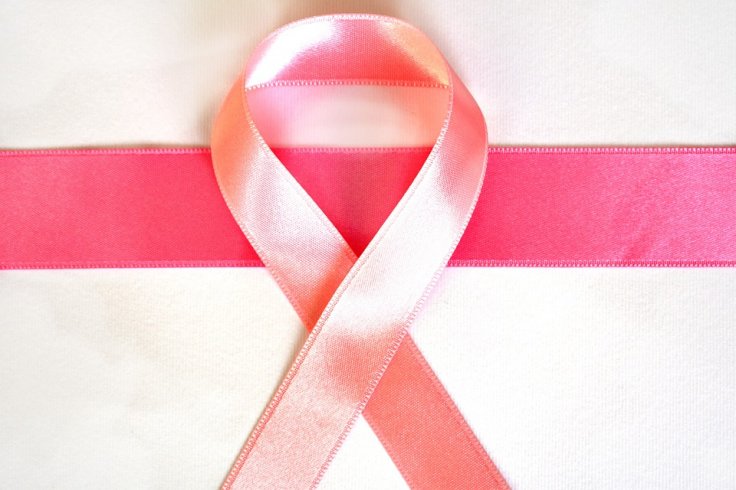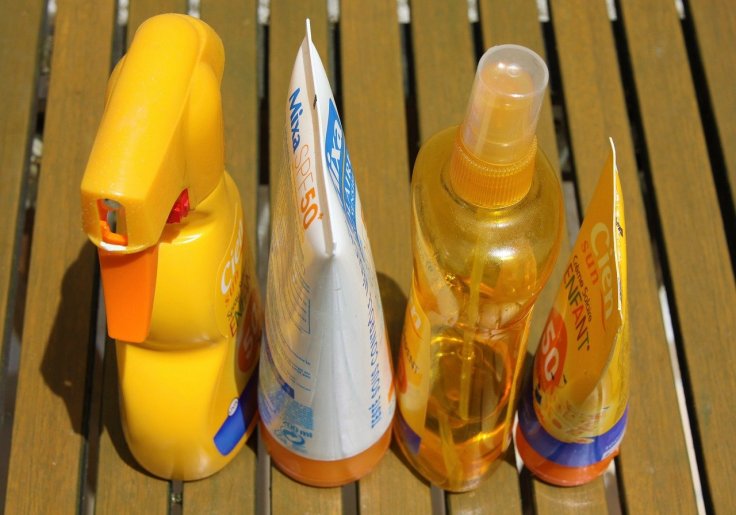Chemicals used in cosmetic products have a wide range of side effects, including rashes. Of the regularly used cosmetics, sunscreen lotions pose a greater risk due to their ingredients. While many previous studies focused on the toxicity of the chemical, in a recent study, scientists tried to find a connection between the chemicals and diet that could lead to cancer. They found oxybenzone or benzophenone-3 (BP-3) could increase the risks of breast cancer.
Sunscreen lotions have many ingredients that block the sun's ultra-violet rays. Until recently, many experts claimed that since those were not absorbed by the skin, sunscreen did not pose any risk to skin cancer. But a study by the US Food and Drug Administration (FDA) found many of the ingredients were indeed absorbed by the skin, increasing the chances of skin cancer. However, the recent study focused on another type of cancer that is not commonly associated with sunscreen lotions — breast cancer.
BP-3 is a naturally occurring chemical that is used in many popular sunscreen lotions as it can absorb and scatter UV rays. But according to a study, published in the journal Oncotarget, scientists found BP-3 exposure could increase the risks of developing mammary gland tumors.

Disrupts Endocrine System
The endocrine system plays a key role in hormone secretion that helps in major bodily functions. BP-3 is known as an endocrine disruptive chemical. As a dysfunctional endocrine system can lead to various health problems including diabetes, reduced weight at birth and endometriosis besides breast cancer, BP-3's role cannot be overlooked.
Hence, many scientists have called for regulations on BP-3. As per a study in 2019, using a sunscreen lotion heavily could exceed BP-3 levels so much that it could be considered a toxicological problem. As 96 percent of the US population has BP-3, overuse of sunscreen lotion could become a concern.
"These studies reveal significant effects on the course of Trp53-null mammary tumorigenesis induced by exposure to benzophenone-3 (BP-3; oxybenzone), a common active ingredient in sunscreens and other personal care products," the researchers said.
Increased Risks of Breast Cancer
While the direct effects of chemicals on skin are understood, scientists wanted to study the effects of a diet that could impact tumor growth. To check their hypothesis, researchers used a mouse study. The mice were split into three groups — first on a low-fat diet, second on a high-fat diet and the third was given a high-fat diet during puberty and a low-fat diet afterward.

All the three groups were then further divided into two with one given BP-3 daily that could mimic the sunscreen application. Scientists found that all the mice that were given BP-3 had developed two types of tumors that can lead to breast cancer — epithelial and spindle cell tumors that can result in claudin-low breast cancer.
Researchers observed a complex relation between diet and BP-3. Mice that were on a low-fat diet with BP-3 developed spindle cell tumors while they had some protection against epithelial tumors. However, mice on a high-fat diet had no protection and developed aggressive epithelial tumors. The same was noticed in the third group as well.
"I was prepared to see no difference at all from BP-3 in any of our diets but we found that even a relatively brief exposure to a high-fat diet during puberty is enough to allow BP-3 to cause a change in the outcome for cancer,"
Richard Schwartz, a professor of Microbiology and Molecular Genetics at the Michigan State University, told Medical News Today. He was also the co-corresponding author of the experiment.
While Professor Schwartz believes more study is needed to understand the relation between diet, BP-3 and cancer risk, the research proved an increased risk of cancer associated with BP-3. "In balance, these results suggest that there are enough bad effects from BP-3 overall that we believe it calls for the precautionary principle," he added.









